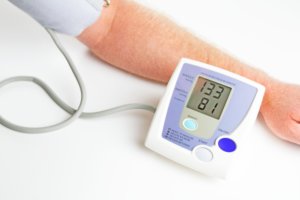 Elevated blood pressure causes more premature deaths worldwide than any other factor. Blood pressure is regulated by a number of things such as diet and lifestyle. Science has also discovered that low blood levels of zinccontribute to high blood pressure because it impairs the ability of the kidneys to regulate sodium levels. This was demonstrated recently in a study that is published in American Journal of Physiology – Renal Physiology. Clinical zinc deficiencies are especially common among type 2 diabetics and people with kidney ailments. Subclinical zinc deficiency is also quite common. Even if you get plenty of zinc from your diet, the risk of poor zinc absorption increases with age. Vegetarian and vegan diets, overconsumption of calcium, drinking too much alcohol, using birth control pills and several types of medicine, plus certain other factors can also increase the risk of a zinc deficiency.
Elevated blood pressure causes more premature deaths worldwide than any other factor. Blood pressure is regulated by a number of things such as diet and lifestyle. Science has also discovered that low blood levels of zinccontribute to high blood pressure because it impairs the ability of the kidneys to regulate sodium levels. This was demonstrated recently in a study that is published in American Journal of Physiology – Renal Physiology. Clinical zinc deficiencies are especially common among type 2 diabetics and people with kidney ailments. Subclinical zinc deficiency is also quite common. Even if you get plenty of zinc from your diet, the risk of poor zinc absorption increases with age. Vegetarian and vegan diets, overconsumption of calcium, drinking too much alcohol, using birth control pills and several types of medicine, plus certain other factors can also increase the risk of a zinc deficiency.
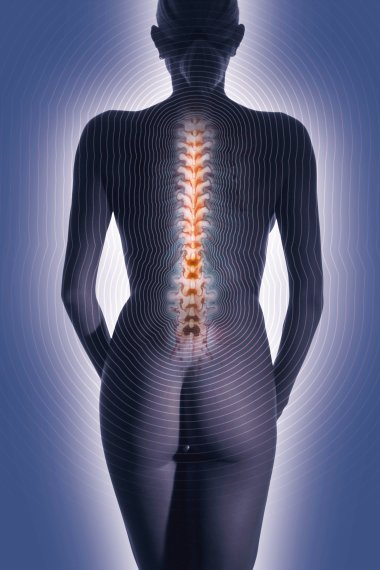 An adult contains around one kilogram of calcium, which is the most abundant mineral in the human body. Bones and teeth store around 99% of our calcium and 1 per cent is used to support metabolic functions. Levels of calcium in the blood are tightly controlled, as the slightest deviations may result in serious symptoms of the nervous system and the heart.
An adult contains around one kilogram of calcium, which is the most abundant mineral in the human body. Bones and teeth store around 99% of our calcium and 1 per cent is used to support metabolic functions. Levels of calcium in the blood are tightly controlled, as the slightest deviations may result in serious symptoms of the nervous system and the heart.
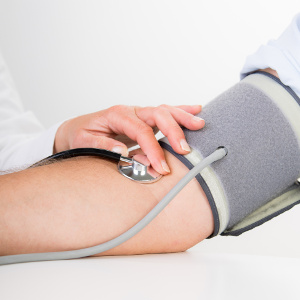 Yes, according to a new study published in Free Radical Biology & Medicine, lack of seleniumlowers the kidneys’ sodium excretion via different mechanisms, and that leads to elevated blood pressure. The study results are highly relevant because hypertension and subsequent premature death is a growing global problem. Selenium deficiency is also a widespread problem. One billion people worldwide are believed to be lack this essential nutrient, primarily because of the selenium-depleted agricultural soil in large parts of China, Europe, and other places.
Yes, according to a new study published in Free Radical Biology & Medicine, lack of seleniumlowers the kidneys’ sodium excretion via different mechanisms, and that leads to elevated blood pressure. The study results are highly relevant because hypertension and subsequent premature death is a growing global problem. Selenium deficiency is also a widespread problem. One billion people worldwide are believed to be lack this essential nutrient, primarily because of the selenium-depleted agricultural soil in large parts of China, Europe, and other places.
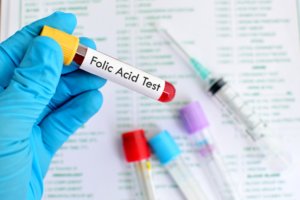 Hypertension is a growing problem. Worldwide, it causes more premature deaths than any other risk factor. Chinese researchers have now found that supplementation with a combination of folic acid and anti-hypertensive medicine lowers the risk of stroke by nearly 75 percent. It is important to underline that many people have elevated blood pressure without knowing about it, and many things can cause a folic acid deficiency or poor utilization of the vitamin.
Hypertension is a growing problem. Worldwide, it causes more premature deaths than any other risk factor. Chinese researchers have now found that supplementation with a combination of folic acid and anti-hypertensive medicine lowers the risk of stroke by nearly 75 percent. It is important to underline that many people have elevated blood pressure without knowing about it, and many things can cause a folic acid deficiency or poor utilization of the vitamin.
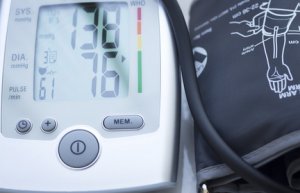 There is widespread potassium deficiency, and it is common knowledge that an increased potassiumintake lowers the risk of hypertension, which is the leading cause of stroke, cardiovascular disease, and early death. However, not many people know that potassium has a vital impact on blood sugar levels and the prevention of diabetes, just as it counteracts side effects of diuretics. The question is how much potassium do we need – and how does the balance between potassium and sodium (salt) affect our health?
There is widespread potassium deficiency, and it is common knowledge that an increased potassiumintake lowers the risk of hypertension, which is the leading cause of stroke, cardiovascular disease, and early death. However, not many people know that potassium has a vital impact on blood sugar levels and the prevention of diabetes, just as it counteracts side effects of diuretics. The question is how much potassium do we need – and how does the balance between potassium and sodium (salt) affect our health?
 Women from the age of 50 years and older have an increased risk of blood sugar problems, weight problems, cardiovascular disease, and metabolic syndrome, if they lack vitamin D, according to a new study from Sao Paulo in Brazil. If you want to control your blood sugar levels and lose weight, it is not sufficient to eat less and work out at the gym. You also need sun exposure (without getting burned), because the summer sun is our richest source of vitamin D. You may even want to take a vitamin D supplement during the winter period.
Women from the age of 50 years and older have an increased risk of blood sugar problems, weight problems, cardiovascular disease, and metabolic syndrome, if they lack vitamin D, according to a new study from Sao Paulo in Brazil. If you want to control your blood sugar levels and lose weight, it is not sufficient to eat less and work out at the gym. You also need sun exposure (without getting burned), because the summer sun is our richest source of vitamin D. You may even want to take a vitamin D supplement during the winter period.
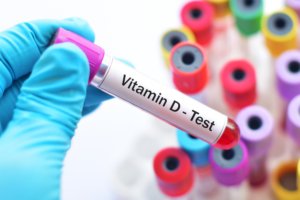 Expecting mothers should pay careful attention to getting enough vitamin D all year round, especially because vitamin D deficiencies are so commonplace, to begin with. Lack of vitamin D at birth and the first years of life is associated with an increased risk of infant hypertension, and the problem can even continue to adulthood. This was shown in a study that is published in the science journal Hypertension. The researchers advise pregnant women to have their vitamin D levels measured, and they even recommend vitamin D supplements for pregnant women and children as a way of preventing elevated blood pressure later in life.
Expecting mothers should pay careful attention to getting enough vitamin D all year round, especially because vitamin D deficiencies are so commonplace, to begin with. Lack of vitamin D at birth and the first years of life is associated with an increased risk of infant hypertension, and the problem can even continue to adulthood. This was shown in a study that is published in the science journal Hypertension. The researchers advise pregnant women to have their vitamin D levels measured, and they even recommend vitamin D supplements for pregnant women and children as a way of preventing elevated blood pressure later in life.
 Magnesium is an essential mineral. An adult contains around 20-30 grams of magnesium. Approximately half of the body's magnesium supply is stored in the bones. The rest is distributed in the muscles, liver, nerve tissue and other soft tissues. Magnesium is mainly found inside the cells where it supports over 300 different enzymatic processes.
Magnesium is an essential mineral. An adult contains around 20-30 grams of magnesium. Approximately half of the body's magnesium supply is stored in the bones. The rest is distributed in the muscles, liver, nerve tissue and other soft tissues. Magnesium is mainly found inside the cells where it supports over 300 different enzymatic processes.
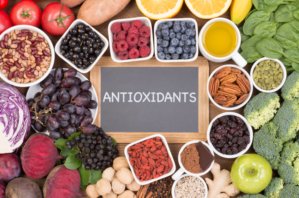 Elevated blood pressure is the main cause of stroke, cardiovascular disease and early death. For quite some time, there has been evidence that intake of fruit and vegetables affects the risk of developing elevated blood pressure. Science has not yet studied if this is due to the antioxidants in our diets, but a team of French scientists has looked closer at this. The researchers found that the total amount of antioxidants in our diet may lower by 15 percent the risk of elevated blood pressure. The potassium in fruit and vegetables also play a determining role in blood pressure management, and the same goes for Q10 – provided you take quality supplements with proper absorption.
Elevated blood pressure is the main cause of stroke, cardiovascular disease and early death. For quite some time, there has been evidence that intake of fruit and vegetables affects the risk of developing elevated blood pressure. Science has not yet studied if this is due to the antioxidants in our diets, but a team of French scientists has looked closer at this. The researchers found that the total amount of antioxidants in our diet may lower by 15 percent the risk of elevated blood pressure. The potassium in fruit and vegetables also play a determining role in blood pressure management, and the same goes for Q10 – provided you take quality supplements with proper absorption.
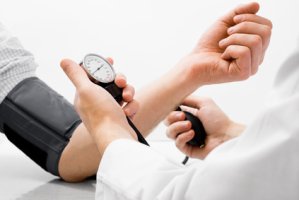 Many older people sleep poorly and tend to have elevated blood pressure. Luckily, supplementation with melatonin seems to correct both problems. Melatonin can even improve sleep in people who take beta-blockers for high blood pressure. So what is melatonin, and why is this substance particularly useful for older people?
Many older people sleep poorly and tend to have elevated blood pressure. Luckily, supplementation with melatonin seems to correct both problems. Melatonin can even improve sleep in people who take beta-blockers for high blood pressure. So what is melatonin, and why is this substance particularly useful for older people?
 Elevated blood pressure, a problem many people have without knowing it, is the major cause of early death. Our lifestyle and what we eat play an enormous role and according to a new meta-analysis that is published in Journal of the American Heart Association, daily intake of three grams of omega-3 fatty acids can reduce your blood pressure. It is possible to get this amount of omega-3by consuming a serving of oily fish like herring or taking a high-quality fish oil supplement.
Elevated blood pressure, a problem many people have without knowing it, is the major cause of early death. Our lifestyle and what we eat play an enormous role and according to a new meta-analysis that is published in Journal of the American Heart Association, daily intake of three grams of omega-3 fatty acids can reduce your blood pressure. It is possible to get this amount of omega-3by consuming a serving of oily fish like herring or taking a high-quality fish oil supplement.
 Q10 is a lipid-soluble coenzyme that is found in all the body's cells, except for the red blood cells. Carbohydrate, fat, and protein get converted into energy by means of Q10 and the oxygen we breathe. This process takes place inside the small, cellular power stations called mitochondria. To begin with, Q10 contributes to storing the energy in a chemical form called ATP (adenosine triphosphate). After that, Q10 makes sure that the energy is released in step with the shifting energy requirement of the cells.
Q10 is a lipid-soluble coenzyme that is found in all the body's cells, except for the red blood cells. Carbohydrate, fat, and protein get converted into energy by means of Q10 and the oxygen we breathe. This process takes place inside the small, cellular power stations called mitochondria. To begin with, Q10 contributes to storing the energy in a chemical form called ATP (adenosine triphosphate). After that, Q10 makes sure that the energy is released in step with the shifting energy requirement of the cells.
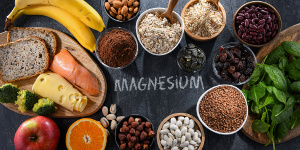 Magnesium supports hundreds of different enzyme processes that are involved in energy turnover, sugar metabolism, nerves, and several other basic functions. Unfortunately, magnesium deficiency is rather common and more and more studies suggest that this may be related to a host of metabolic disturbances such as overweight, insulin resistance, type 2 diabetes, hypertension, elevated cholesterol, and chronic low-grade inflammation that is seen in connection with most chronic diseases. On the other and, it appears that high intake of magnesium from the diet or from supplements may help. In a new review article that is published in Nutrients, the authors look at magnesium deficiency and its role in the development of metabolic disorders. They also look at factors such as nutrient-depleted farmland, unhealthy diets, poor nutrient uptake, insulin resistance, the use of medicine, alcohol abuse, and stress that can potentially result in a magnesium deficiency.
Magnesium supports hundreds of different enzyme processes that are involved in energy turnover, sugar metabolism, nerves, and several other basic functions. Unfortunately, magnesium deficiency is rather common and more and more studies suggest that this may be related to a host of metabolic disturbances such as overweight, insulin resistance, type 2 diabetes, hypertension, elevated cholesterol, and chronic low-grade inflammation that is seen in connection with most chronic diseases. On the other and, it appears that high intake of magnesium from the diet or from supplements may help. In a new review article that is published in Nutrients, the authors look at magnesium deficiency and its role in the development of metabolic disorders. They also look at factors such as nutrient-depleted farmland, unhealthy diets, poor nutrient uptake, insulin resistance, the use of medicine, alcohol abuse, and stress that can potentially result in a magnesium deficiency.
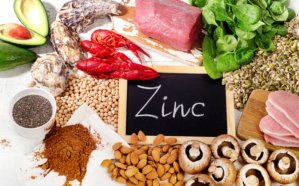 Our ability to absorb zinc is reduced with age, and many older people lack zinc, even though there is plenty of zinc in the diet they eat. The trace element is involved in over 1,000 enzyme processes and is also an important antioxidant that protects our cells. Even minor zinc deficiencies can speed up ageing processes and contribute to skin and hair problems, infections such as bladder infections, chronic inflammation, elevated blood pressure, cancer, and other diseases. People with unhealthy diets, vegetarians, vegans, and older people are at particularly vulnerable. Certain types of medicine that many seniors take can also increase the risk of a zinc deficiency.
Our ability to absorb zinc is reduced with age, and many older people lack zinc, even though there is plenty of zinc in the diet they eat. The trace element is involved in over 1,000 enzyme processes and is also an important antioxidant that protects our cells. Even minor zinc deficiencies can speed up ageing processes and contribute to skin and hair problems, infections such as bladder infections, chronic inflammation, elevated blood pressure, cancer, and other diseases. People with unhealthy diets, vegetarians, vegans, and older people are at particularly vulnerable. Certain types of medicine that many seniors take can also increase the risk of a zinc deficiency.
 Elevated blood pressure causes more premature deaths worldwide than any other factor. Blood pressure is regulated by a number of things such as diet and lifestyle. Science has also discovered that low blood levels of zinccontribute to high blood pressure because it impairs the ability of the kidneys to regulate sodium levels. This was demonstrated recently in a study that is published in American Journal of Physiology – Renal Physiology. Clinical zinc deficiencies are especially common among type 2 diabetics and people with kidney ailments. Subclinical zinc deficiency is also quite common. Even if you get plenty of zinc from your diet, the risk of poor zinc absorption increases with age. Vegetarian and vegan diets, overconsumption of calcium, drinking too much alcohol, using birth control pills and several types of medicine, plus certain other factors can also increase the risk of a zinc deficiency.
Elevated blood pressure causes more premature deaths worldwide than any other factor. Blood pressure is regulated by a number of things such as diet and lifestyle. Science has also discovered that low blood levels of zinccontribute to high blood pressure because it impairs the ability of the kidneys to regulate sodium levels. This was demonstrated recently in a study that is published in American Journal of Physiology – Renal Physiology. Clinical zinc deficiencies are especially common among type 2 diabetics and people with kidney ailments. Subclinical zinc deficiency is also quite common. Even if you get plenty of zinc from your diet, the risk of poor zinc absorption increases with age. Vegetarian and vegan diets, overconsumption of calcium, drinking too much alcohol, using birth control pills and several types of medicine, plus certain other factors can also increase the risk of a zinc deficiency.







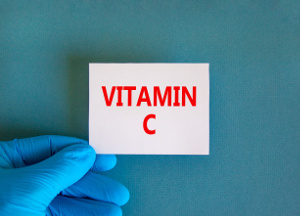



 An adult contains around one kilogram of calcium, which is the most abundant mineral in the human body. Bones and teeth store around 99% of our calcium and 1 per cent is used to support metabolic functions. Levels of calcium in the blood are tightly controlled, as the slightest deviations may result in serious symptoms of the nervous system and the heart.
An adult contains around one kilogram of calcium, which is the most abundant mineral in the human body. Bones and teeth store around 99% of our calcium and 1 per cent is used to support metabolic functions. Levels of calcium in the blood are tightly controlled, as the slightest deviations may result in serious symptoms of the nervous system and the heart. Yes, according to a new study published in Free Radical Biology & Medicine, lack of
Yes, according to a new study published in Free Radical Biology & Medicine, lack of  Hypertension is a growing problem. Worldwide, it causes more premature deaths than any other risk factor. Chinese researchers have now found that supplementation with a combination of folic acid and anti-hypertensive medicine lowers the risk of stroke by nearly 75 percent. It is important to underline that many people have elevated blood pressure without knowing about it, and many things can cause a
Hypertension is a growing problem. Worldwide, it causes more premature deaths than any other risk factor. Chinese researchers have now found that supplementation with a combination of folic acid and anti-hypertensive medicine lowers the risk of stroke by nearly 75 percent. It is important to underline that many people have elevated blood pressure without knowing about it, and many things can cause a  There is widespread potassium deficiency, and it is common knowledge that an increased
There is widespread potassium deficiency, and it is common knowledge that an increased  Women from the age of 50 years and older have an increased risk of blood sugar problems, weight problems, cardiovascular disease, and metabolic syndrome, if they lack
Women from the age of 50 years and older have an increased risk of blood sugar problems, weight problems, cardiovascular disease, and metabolic syndrome, if they lack  Expecting mothers should pay careful attention to getting enough vitamin D all year round, especially because vitamin D deficiencies are so commonplace, to begin with. Lack of vitamin D at birth and the first years of life is associated with an increased risk of infant hypertension, and the problem can even continue to adulthood. This was shown in a study that is published in the science journal Hypertension. The researchers advise pregnant women to have their vitamin D levels measured, and they even recommend vitamin D supplements for pregnant women and children as a way of preventing elevated blood pressure later in life.
Expecting mothers should pay careful attention to getting enough vitamin D all year round, especially because vitamin D deficiencies are so commonplace, to begin with. Lack of vitamin D at birth and the first years of life is associated with an increased risk of infant hypertension, and the problem can even continue to adulthood. This was shown in a study that is published in the science journal Hypertension. The researchers advise pregnant women to have their vitamin D levels measured, and they even recommend vitamin D supplements for pregnant women and children as a way of preventing elevated blood pressure later in life. Magnesium is an essential mineral. An adult contains around 20-30 grams of magnesium. Approximately half of the body's magnesium supply is stored in the bones. The rest is distributed in the muscles, liver, nerve tissue and other soft tissues. Magnesium is mainly found inside the cells where it supports over 300 different enzymatic processes.
Magnesium is an essential mineral. An adult contains around 20-30 grams of magnesium. Approximately half of the body's magnesium supply is stored in the bones. The rest is distributed in the muscles, liver, nerve tissue and other soft tissues. Magnesium is mainly found inside the cells where it supports over 300 different enzymatic processes. Elevated blood pressure is the main cause of stroke, cardiovascular disease and early death. For quite some time, there has been evidence that intake of fruit and vegetables affects the risk of developing elevated blood pressure. Science has not yet studied if this is due to the antioxidants in our diets, but a team of French scientists has looked closer at this. The researchers found that the total amount of antioxidants in our diet may lower by 15 percent the risk of elevated blood pressure. The potassium in fruit and vegetables also play a determining role in blood pressure management, and the same goes for Q10 – provided you take quality supplements with proper absorption.
Elevated blood pressure is the main cause of stroke, cardiovascular disease and early death. For quite some time, there has been evidence that intake of fruit and vegetables affects the risk of developing elevated blood pressure. Science has not yet studied if this is due to the antioxidants in our diets, but a team of French scientists has looked closer at this. The researchers found that the total amount of antioxidants in our diet may lower by 15 percent the risk of elevated blood pressure. The potassium in fruit and vegetables also play a determining role in blood pressure management, and the same goes for Q10 – provided you take quality supplements with proper absorption. Many older people sleep poorly and tend to have elevated blood pressure. Luckily, supplementation with melatonin seems to correct both problems. Melatonin can even improve sleep in people who take beta-blockers for high blood pressure. So what is melatonin, and why is this substance particularly useful for older people?
Many older people sleep poorly and tend to have elevated blood pressure. Luckily, supplementation with melatonin seems to correct both problems. Melatonin can even improve sleep in people who take beta-blockers for high blood pressure. So what is melatonin, and why is this substance particularly useful for older people? Elevated blood pressure, a problem many people have without knowing it, is the major cause of early death. Our lifestyle and what we eat play an enormous role and according to a new meta-analysis that is published in Journal of the American Heart Association, daily intake of three grams of omega-3 fatty acids can reduce your blood pressure. It is possible to get this amount of
Elevated blood pressure, a problem many people have without knowing it, is the major cause of early death. Our lifestyle and what we eat play an enormous role and according to a new meta-analysis that is published in Journal of the American Heart Association, daily intake of three grams of omega-3 fatty acids can reduce your blood pressure. It is possible to get this amount of  Q10 is a lipid-soluble coenzyme that is found in all the body's cells, except for the red blood cells. Carbohydrate, fat, and protein get converted into energy by means of Q10 and the oxygen we breathe. This process takes place inside the small, cellular power stations called mitochondria. To begin with, Q10 contributes to storing the energy in a chemical form called ATP (adenosine triphosphate). After that, Q10 makes sure that the energy is released in step with the shifting energy requirement of the cells.
Q10 is a lipid-soluble coenzyme that is found in all the body's cells, except for the red blood cells. Carbohydrate, fat, and protein get converted into energy by means of Q10 and the oxygen we breathe. This process takes place inside the small, cellular power stations called mitochondria. To begin with, Q10 contributes to storing the energy in a chemical form called ATP (adenosine triphosphate). After that, Q10 makes sure that the energy is released in step with the shifting energy requirement of the cells.
 Our ability to absorb
Our ability to absorb  "After about one week of taking the Q10 supplement I could feel a huge difference," says 23-year old Alan Piccini, who has been suffering from extreme fatigue and muscle aches ever since he was a child.
"After about one week of taking the Q10 supplement I could feel a huge difference," says 23-year old Alan Piccini, who has been suffering from extreme fatigue and muscle aches ever since he was a child. “Taking capsules with co-enzyme Q10 has freed me of the severe side effects of my cholesterol lowering medicine,” Mrs Franken explains.
“Taking capsules with co-enzyme Q10 has freed me of the severe side effects of my cholesterol lowering medicine,” Mrs Franken explains.